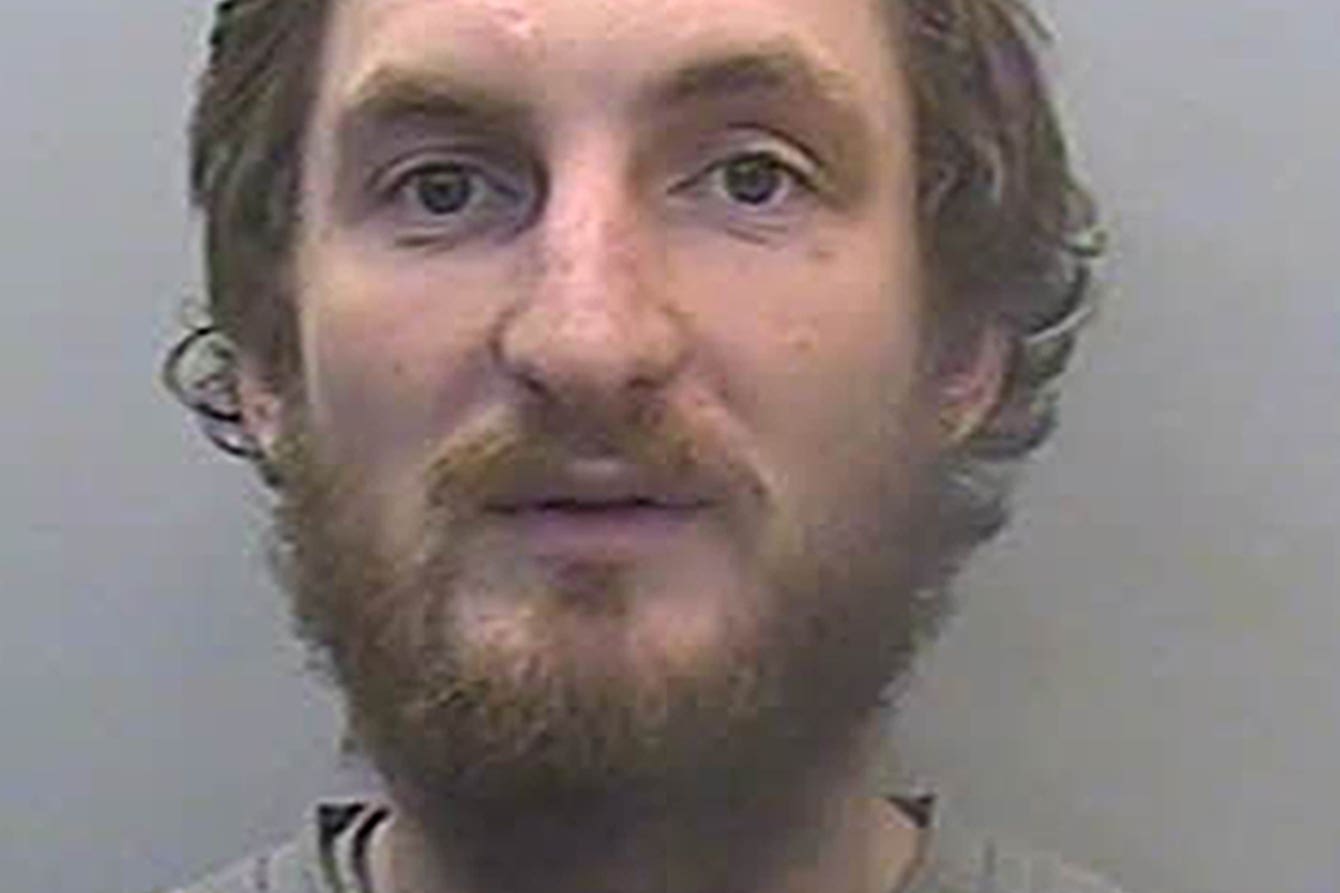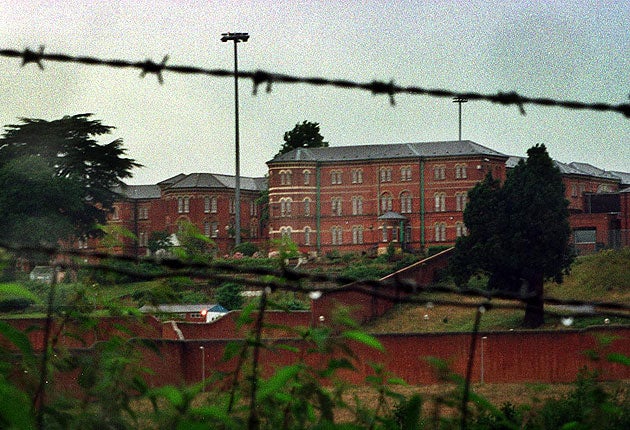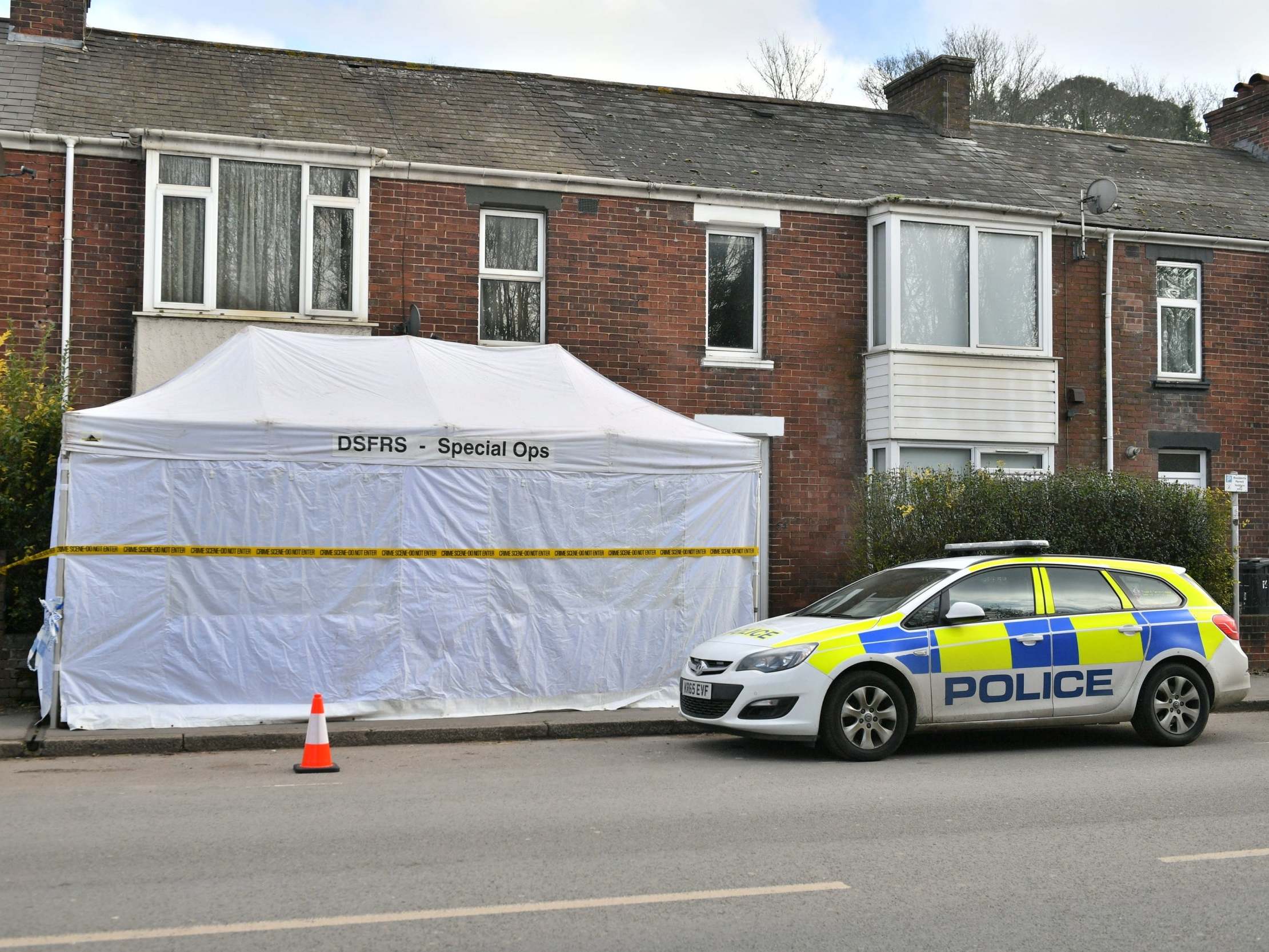Negligence case by schizophrenic man who killed three OAPs gets go-ahead
Lewis-Ranwell later sued G4S Health Services (UK), Devon & Cornwall Police, Devon Partnership NHS Trust and Devon County Council, claiming all four were negligent in their treatment of him

A paranoid schizophrenic who killed three pensioners will be allowed to continue his legal challenge over his treatment from authorities before the deaths, the Court of Appeal has ruled.
Alexander Lewis-Ranwell, 32, battered Anthony Payne, 80, with a hammer and bludgeoned to death with a shovel 84-year-old twins Dick and Roger Carter in February 2019.
The incidents at homes in Exeter came just hours after Lewis-Ranwell had been released from custody for attacking an elderly farmer with a saw.
That was his second arrest in the space of 24 hours, and took place just seven hours after he had first been released.
After a trial, a jury at Exeter Crown Court found the former scaffolder, from Croyde, north Devon, not guilty of murder by reason of insanity – meaning that because of his mental illness he did not know at the time of the killings what he was doing was wrong.
The panel of eight men and four women took six hours and 15 minutes to return their unanimous verdict.
Before returning their verdict, the jury had given a note to the judge in which they raised their concerns about the “state of psychiatric services in the county of Devon and the failings in care in Lewis-Ranwell’s case”.
A judge imposed a hospital order with restrictions, with Lewis-Ranwell detained at the high-security Broadmoor Hospital.

Lewis-Ranwell later sued G4S Health Services (UK), Devon & Cornwall Police, Devon Partnership NHS Trust and Devon County Council, claiming all four were negligent in their treatment of him.
The Court of Appeal was told that he alleges “it should have been obvious to all concerned during both detentions that if he were released there was a real risk that he would injure other people, and that the necessary steps should have been taken to keep him in detention until it was safe for him to be released”.
G4S, the health trust, and the council previously brought failed legal bids to have part of the civil compensation claims against them thrown out by a judge.
At a hearing in June, the three organisations asked the Court of Appeal to overturn the High Court ruling that Lewis-Ranwell’s negligence case should not be struck out.

Under an “illegality defence”, they argued that he should not be allowed to bring a claim based on the consequences of his “three unlawful homicides”.
Lewis-Ranwell’s legal team argued the not guilty verdict by reason of insanity was an acquittal, so under the law he was not treated as criminally responsible for his actions and could bring his claim.
In a majority ruling on Tuesday, senior judges said Lewis-Ranwell’s case against the organisations could continue.
Lord Justice Underhill, with whom Dame Victoria Sharp agreed, said he believed “the considered view of right-thinking people would be that someone who was indeed insane should not be debarred from compensation for the consequences of their doing an unlawful act which they did not know was wrong and for which they therefore had no moral culpability”.
Lady Justice Andrews said she would have allowed the appeal.
Lewis-Ranwell’s trial was previously told that he had been gripped by paranoid schizophrenia and suffering from delusions about saving young girls from a paedophile ring.
Before returning their unanimous verdicts, the jury passed a note to the judge, Mrs Justice May, which said: “We the jury are concerned at the state of psychiatric service provision in the county of Devon.
“Can we be assured that the failings in care offered to Alexander Lewis-Ranwell will be appropriately addressed following the trial?”
Lawyers for Lewis-Ranwell told the Court of Appeal that his claim involved allegations of “inadequate provision” of mental health services in police custody between February 8 and 10 2019.
‘Acutely unwell’ - A timeline of events
The original court case heard about a “whirlwind of destruction” which took place over a few hours in February 2019.
Just hours before Lewis-Ranwell attacked Mr Payne in an upstairs bedroom of his terraced home, he had been released from police custody for attacking farmer John Ellis, 82, with a saw.
This was his second arrest in the space of 24 hours and occurred just seven hours after he had been arrested for attempted burglary at another farm.
The court also heard evidence of Lewis-Ranwell’s interaction with various health professionals during his three spells in custody between February 8 and 11.

After his first arrest, his mother, Jill Lewis-Ranwell, had phoned police expressing “grave concerns should he be released” but he was charged and let go.
He was released from custody at Barnstaple police station at 2.49am on February 9 but returned there seven hours later after attacking Mr Ellis.
A 12-minute triage call with a mental health practitioner at 3pm identified “potential psychotic symptoms present including paranoid beliefs”.
An inspector reviewing his detention wrote at 4.11pm that Lewis-Ranwell “potentially presents a serious risk to the public if released”.
A forensic medical examiner – a doctor employed by G4S Health Services – was escorted to Lewis-Ranwell’s cell at 6.30pm but deemed he was not “acutely unwell” and a full mental health assessment was not carried out.
Dr Mihal Pichui told jurors he left the police station with the “expectation” he would be seen by a mental health nurse the following morning but later found out this did not happen.
Lewis-Ranwell was released from Barnstaple police station at 9.32am and travelled to Exeter.
He entered the home of Mr Payne in the St David’s area of the city at about 12.30pm and picked up a rusty hammer, which he used to bludgeon the pensioner to death.
Lewis-Ranwell then scaled the wall of the Carter brothers’ home in Cowick Lane, taking a spade from the garden and using it to beat them both to death.
He was arrested for a third time in a day after the killings following an incident at a hotel in Exeter where he attacked night manager Stasys Belevicius.
